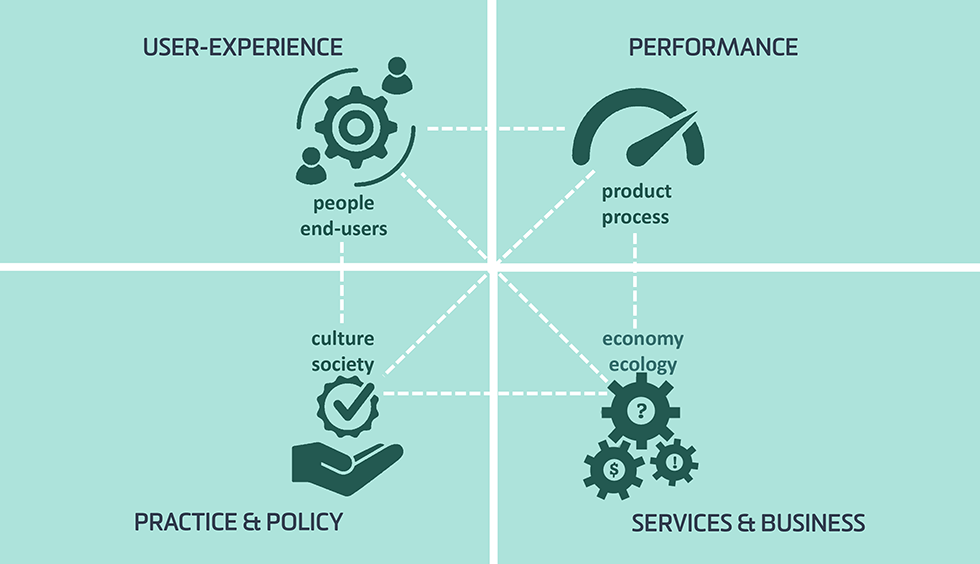The increasing ubiquity of XR (eXtended Reality, including Augmented Reality – AR and Virtual Reality – VR) technology provides new opportunities to represent architecture and urban information in innovative way and in the meantime to collect qualitative data on people and place. With the seed funding an IDF team will be built within the school that closely work with our industry partner – the City of Greater Geelong (CoGG). The team will work to address real-world problems presented by CoGG including: how to effectively communicate with local residents on issues related to city planning; how to share open data and to improve engagement with citizens; how to enhance the experiences on the qualitative and sensory aspects of the city (such as the celebration of local art and retention of history through storytelling) for local communities and tourists. Such problems all lead to one challenge:
How to make the future of the city more intelligent and its citizens more informed, so that the people and the place are better connected?
To address this challenge, our trans-disciplinary team will focus on establishing socio-technological methods, developing a number of “research by design” prototypes and conducting case studies under three themes around the three key words – informed, intelligent, and connected:
Theme 1 – Informed: Extended Data Experience
Problem: CoGG has one of the most detailed collections of physical city data in Australia, gathered in its expansive GIS database. They are willing to share this data with the public, however there is no effective method for the public to understand or to use the data because of the technical nature of the data and its method of delivery.
Aim: to develop methods with XR technology for laypersons to be able to better understand city data.
Prototype: an Augmented Reality (AR) application that represents the data of vegetation (such as trees) for local communities to explore
Expected outcomes: It is anticipated that open data from the City will be better shared and understood by the public, reaching a wider audience; as a result, the engagement of the local communities will be improved.
Theme 2 – Intelligent: Extended Storytelling
Problem: The City of Greater Geelong is embraced with natural beauty and culturally powerful histories. The City council wants to share the stories of the city with its residents and visitors in an innovative way.
Aim: To design an application that enables new, innovative ways of storytelling with XR technology.
Prototype: AR applications that enable local landmarks (e.g.: the Baywalk Bollards) to become “alive” and to tell stories about their various personal histories within Geelong.
Expected outcomes: Local residents and visitors will be highly motivated to explore the culture and history of the city through this innovative storytelling method; their sensory and qualitative experiences with the city will be improved.
Theme 3 – Connected: Collective Place-making with XR
Problem: CoGG establishes a number of “Capital Projects” (new development or urban retrofitting in the public space) in the City each year; the City council is seeking a more effective way to inform local communities of these development proposals.
Aim: To apply innovative research methods for better consultation and communication with local residents during the planning, design, development and maintenance stages of the city’s capital projects.
Prototype: Web/AR/VR based applications to enable local communities and the project designers to exchange design information on a car park retrofitting project located in West Geelong. During the design stage, the local community can “foresee” the proposed development in a direct way and give feedback; during the construction stage, the construction process can be visualised for the local community to monitor; in the post-construction (maintenance) stage, the local community can report issues and problems.
Expected outcomes: Improved understanding and communication between the local community and the project designers. A more holistic public engagement process will facilitate better communication between the City of Greater Geelong and its ratepayer base.
The research we conduct is scalable and can be applied to other industry partners, and can formulate a dynamic ecosystem that benefits three types of stakeholders with improved user experiences and performances in the following ways:
- To local communities: provide combine qualitative and quantitative data for layman understanding;
- To city councils: provide effective communication channels between urban designers and local communities;
- To researchers and educators: harvest both qualitative and quantitative data from the co-design process for knowledge creation.
The research conducted by our team will contribute to the School’s IDF model covering several aspects (see Figure 1). It will directly address the upper two quadrants and could have continuous impacts to the lower two quadrants: in the short term, our research will provide improved user experience (to both the local communities and the city council) and improved performance; in mid-term (5 years), new policies and practices can be formed around such methods; impacts built on this will eventually formulate new services and business models in the long term.
Project Team (Deakin):
Rui Wang
Sofija Kaljevic
Jun Wang
Cecilia De Marinis
Surabhi Pancholi
John Rollo
Yolanda Esteban


